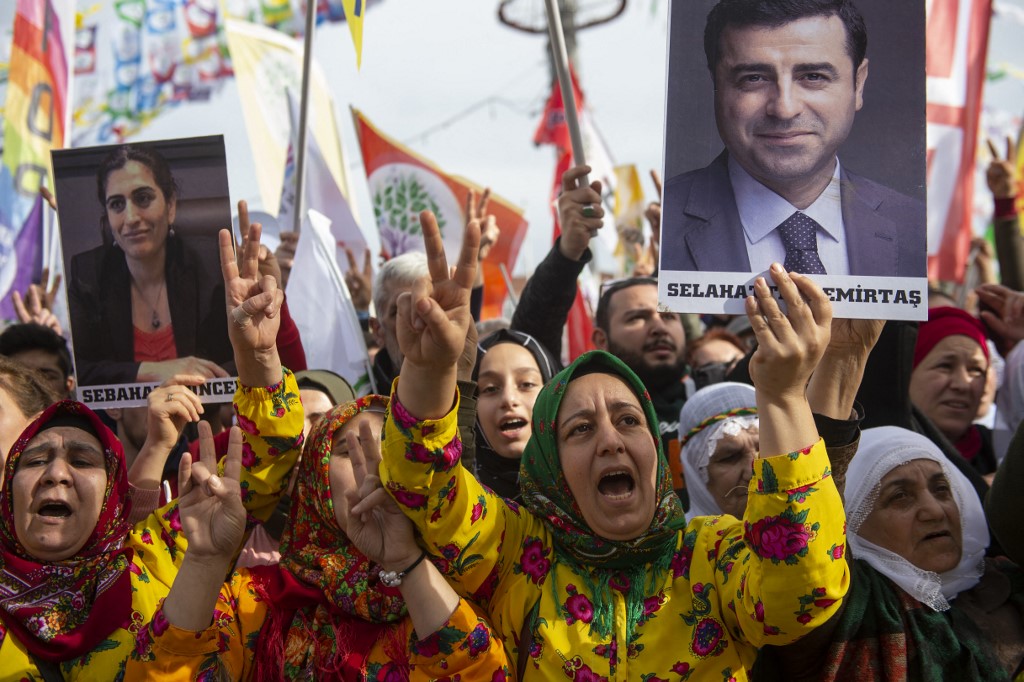Bünyamin Tekin
Since 2016, the Turkish government has systematically appointed trustees to replace democratically elected mayors in the country’s Kurdish-majority regions. This has mainly happened in municipalities that were strongholds of the pro-Kurdish Peoples’ Democratic Party (HDP), which now operates under the name of the Peoples’ Equality and Democracy Party (DEM Party), and has embittered the Kurdish electorate against the government. With the upcoming local elections on March 31, the Kurdish community and its political representatives are looking forward to this date with a mixture of hope and apprehension, which they see as a potential turning point for the restoration of their democratic rights.
The origins of this crisis lie in the aftermath of the June 7, 2015 parliamentary elections, when the Justice and Development Party (AKP) lost its single-party majority in parliament for the first time since coming to power in 2002. The HDP saw a significant increase in support in the elections, winning 13.1 percent of the vote and 80 seats in parliament.
Seeing the Kurds emboldened at the expense of his power, Turkish President Recep Tayyip Erdoğan’s government ended a peace process to resolve the long-standing Kurdish issue.
The Kurdish issue, a term prevalent in Turkey’s public discourse, refers to the demand for equal rights by the country’s Kurdish population and their struggle for recognition.
Turkey has been accused of denying its Kurdish citizens, who make up approximately 20 percent of its population, their political and cultural rights and pursuing policies aimed at their assimilation since the founding of modern Turkey.
Erdoğan’s ruling AKP launched talks with the outlawed Kurdistan Workers’ Party (PKK) leadership in 2012 in a bid to resolve the Kurdish issue, but the talks collapsed in 2015, after which the government allied with a far-right nationalist party and adopted a nationalist discourse, which further disenchanted Kurds.
The situation continued to deteriorate after a failed coup on July 15, 2016, whereupon the Turkish government declared a state of emergency and was able to rule by decree. It was not long before these extraordinary powers were used to replace HDP-affiliated mayors and local council members with government-appointed trustees on accusations of links to the PKK, which is designated as a terrorist organization by Turkey and much of the international community.
This practice intensified between 2016 and 2019. By September 11, 2016, the Ministry of Interior had appointed trustees in 95 municipalities won by the Democratic Regions Party (DBP), the HDP’s regional sister party, leading to the arrest of 93 co-mayors and hundreds of city council members. In addition, almost 15,000 employees and 300 municipal leaders were dismissed from their posts.
The local elections on March 31, 2019 did little to change this development. The HDP won 65 municipalities, but most of its elected representatives were dismissed and replaced by trustees. The accusation of terrorism has often been cited as justification for these measures, although critics point to a violation of due process and the undermining of democratic principles.
The government has been trying to close down the HDP since March 2021 over its alleged ties to the outlawed PKK. The party defended itself, saying it is being singled out for standing up for Kurdish rights and resisting the government’s expanding crackdown on political freedoms and dissent.
Due to the threat of the HDP’s closure, Kurdish politicians entered the general election in May 2023 under a different name, the Green Left Party (YSP), which later changed its name to the DEM Party.
In 2024, as another critical election day approaches, the Kurdish political movement remains resilient, even as it is severely hampered by the continued crackdown. Mehmet Rüştü Tiryaki, deputy co-chair of the DEM Party, expressed the widespread frustration within the Kurdish community in an interview with Kısa Dalga news website.
“The appointment of trustees is a clear interference with the people’s right to vote and be elected,” Tiryaki said. He emphasized that many of these interventions had no basis in the investigation files, indicating a systematic effort to delegitimize and suppress Kurdish political representation.
In the shadow of the appointed trustees, the Kurdish communities have to contend not only with a lack of political representation but also with financial mismanagement and allegations of corruption.
The government claims that the trustees have saved the communities from financial ruin and mismanagement. This claim is fiercely disputed by critics, who point out that there have been no tangible improvements in services and infrastructure under the trustees’ administration.
As March 31 approaches, Kurdish politicians and communities are holding on to the fragile hope that the upcoming elections could herald a new chapter in which the democratic will of the people can be expressed free from the shadow of state encroachment. However, the history of the last eight years clearly shows that the struggle for democratic rights and local autonomy in the Kurdish regions of Turkey is far from over.



